OK. You want to convince teens who don’t use sunscreen that they really should. How do you go about it?

Do you marshal facts about skin cancer? Explain how ultraviolet rays work? Add arguments about increases to health care costs? Then offer examples that support your case?
When we want to persuade someone, our tendency is to begin with a direct approach. Such a technique, however, is often ineffective. As I noted in Write Better, “When we put forward an argument, we can trigger the rational, judging, and evaluative faculties in our audience. As a result, they may respond (at least in their own minds) with arguments of their own” (p. 60).
Our brains aren’t just rational machines that pump out logic. We have another and probably larger dimension to our thinking that we often don’t consider. Some call this intuition or gut reactions. Jonathan Haidt calls them automatic processes.
Based on years of research into how people make moral judgments, Haidt believes we should instead start by being friendly, taking time to understand the other person’s point of view.
Why? Because our emotions have a profound effect on how we think about things. Emotions aren’t opposed to reason, he says. They are instead a way–a very important, very useful way–to reason. (Think about sociopaths who are very rational but lack many emotions and therefore make terrible decisions.) Emotions are not infallible in decision-making, but neither is a rational approach.
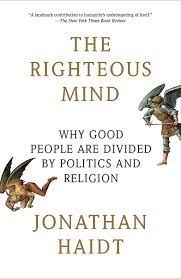 Contrary to what we might think, studies have shown that usually we initially have a hunch about what is right or wrong when faced with an issue. Then our rational faculties may or may not come into play, using our hunch as a starting point. If, then, you want to persuade someone (in person or in writing), start with that intuitive, emotional side because our hunches tend to guide our reasoning.
Contrary to what we might think, studies have shown that usually we initially have a hunch about what is right or wrong when faced with an issue. Then our rational faculties may or may not come into play, using our hunch as a starting point. If, then, you want to persuade someone (in person or in writing), start with that intuitive, emotional side because our hunches tend to guide our reasoning.
Haidt offers a model for how we might put together a persuasive case. Indeed he structured his book, The Righteous Mind, using this very approach. He tells us,
I have tried to use intuitionism [the theory that decisions begin with emotions] while writing this book. My goal is to change the way a diverse group of readers—liberal and conservative, secular and religious—think about morality, politics, religion, and each other. I knew that I had to take things slowly and address myself more to elephants [our intuition] rather than to riders [our reasoning]. I couldn’t just lay out the theory in chapter 1 and then ask readers to reserve judgment until I had presented all of the supporting evidence. Rather, I decided to weave together the history of moral psychology and my own personal story to create a sense of movement from rationalism to intuitionism. I threw in historical anecdotes, quotations from the ancients, and praise of a few visionaries. I set up metaphors (such as the rider and the elephant) that will recur throughout the book. I did these things in order to “tune up” your intuitions about moral psychology. If I have failed and you have a visceral dislike of intuitionism or of me, then no amount of evidence I could present will convince you that intuitionism is correct. But if you now feel an intuitive sense that intuitionism might be true, then let’s keep going (pp. 59-60).
That’s a pattern we can use too. If, then, we want to encourage people, especially teens, to form a habit of using sunscreen, is there a better way?
Could we connect with them at the emotional/intuitive level before going to a rational approach? We could begin by identifying with our audience about how much we love the tanned look. But instead of then moving to the topic of cancer, what if we stick with the beauty angle? Chip and Dan Heath suggest noting that too much tanning gives you wrinkles.* That distasteful image can get an immediate negative reaction from teens that can guide their thinking.
Will everyone be persuaded? No. But by approaching people as whole people, we are likely to persuade more.
—
*See Made to Stick, pp. 38-41.
Image by Pierre-Laurent Durantin from Pixabay
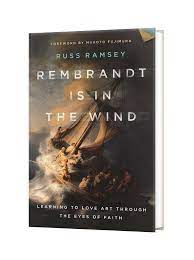 Ramsey is a consummate storyteller. In nine chapters he highlights nine artists from the last five hundred years of the Western world. In each he tells the story of the artist, or of a particular artwork, or of the subject of the art. The tales and their backstories are fascinating and engrossing. Ramsey weaves together mysteries, human drama and more into compelling tapestries.
Ramsey is a consummate storyteller. In nine chapters he highlights nine artists from the last five hundred years of the Western world. In each he tells the story of the artist, or of a particular artwork, or of the subject of the art. The tales and their backstories are fascinating and engrossing. Ramsey weaves together mysteries, human drama and more into compelling tapestries.
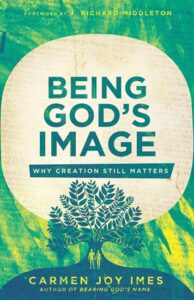 Carmen Joy Imes, in
Carmen Joy Imes, in 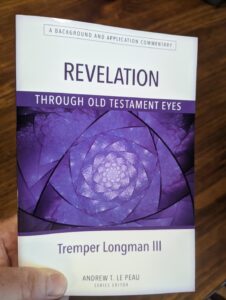
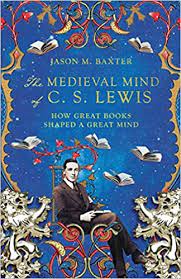
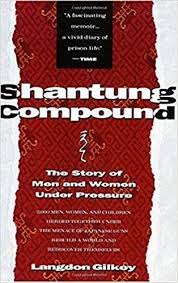
 Riders are not mere lackies. They can learn new types of thinking (math, logic, technology, etc.) and explore alternatives which can help the elephant avoid disaster. “And most important,” as Haidt wrote in
Riders are not mere lackies. They can learn new types of thinking (math, logic, technology, etc.) and explore alternatives which can help the elephant avoid disaster. “And most important,” as Haidt wrote in  Today we live in what Tom Wolfe called the “Me Generation” and what David Brooks labeled in The Road to Character as the age of “the Big Me.” Yet, contrary to popular opinion, our sinful nature is, as Chesterton once observed, the only Christian doctrine that is empirically verifiable.*
Today we live in what Tom Wolfe called the “Me Generation” and what David Brooks labeled in The Road to Character as the age of “the Big Me.” Yet, contrary to popular opinion, our sinful nature is, as Chesterton once observed, the only Christian doctrine that is empirically verifiable.*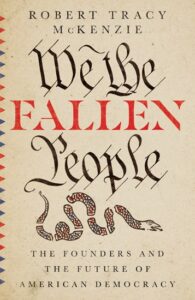


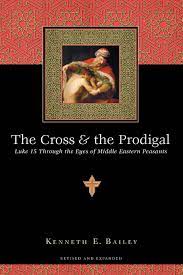
 Further, he acts as his own intermediary. Mediators are common in such cultures. Two people who are at odds do not confront each other directly lest one loose face. The father took this risk of rejection. Indeed, having been the grievously injured party, custom would require that the father wait and aloofly receive his groveling son—which is exactly what the son expects. The father again sets aside his honor for the prospect of joyful reconciliation.
Further, he acts as his own intermediary. Mediators are common in such cultures. Two people who are at odds do not confront each other directly lest one loose face. The father took this risk of rejection. Indeed, having been the grievously injured party, custom would require that the father wait and aloofly receive his groveling son—which is exactly what the son expects. The father again sets aside his honor for the prospect of joyful reconciliation.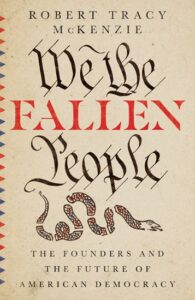
 While those of us who are committed Christians are clearly called to support the causes of justice, this should not be at the cost of bearing witness to the kingdom. Indeed, many conservative Christians claim that the most important thing they can do is spread the gospel of Jesus Christ. Yet they seem quite willing to sacrifice that on the altar of political power.
While those of us who are committed Christians are clearly called to support the causes of justice, this should not be at the cost of bearing witness to the kingdom. Indeed, many conservative Christians claim that the most important thing they can do is spread the gospel of Jesus Christ. Yet they seem quite willing to sacrifice that on the altar of political power. Another problem he spotted is also eerily familiar. Elected officials regularly offered simplistic answers which cannot hold in the face of complex problems. “An idea that is clear and precise even though false,” Tocqueville observed, “will always have greater power in the world than an idea that is true and complex” (p. 194). That is so whether the ideas come from the right or the left.
Another problem he spotted is also eerily familiar. Elected officials regularly offered simplistic answers which cannot hold in the face of complex problems. “An idea that is clear and precise even though false,” Tocqueville observed, “will always have greater power in the world than an idea that is true and complex” (p. 194). That is so whether the ideas come from the right or the left.